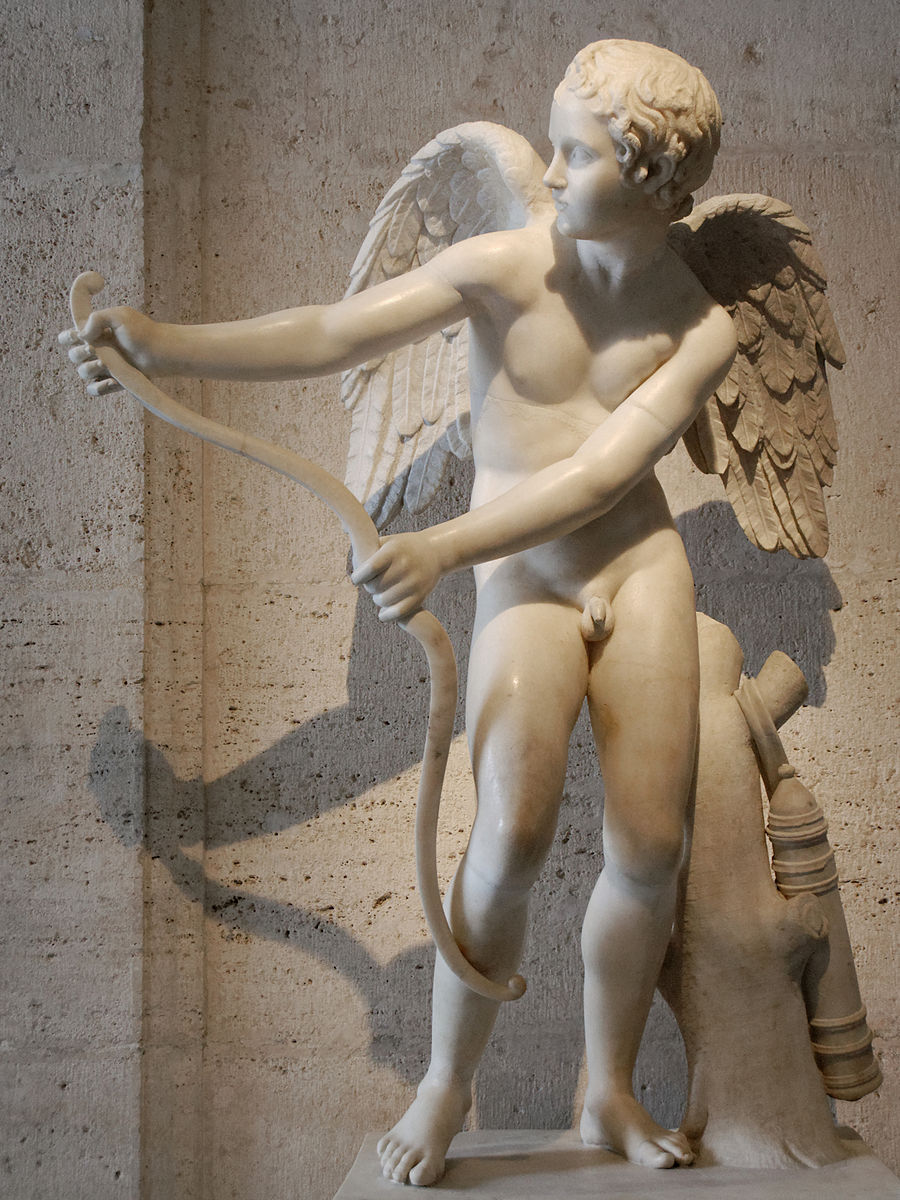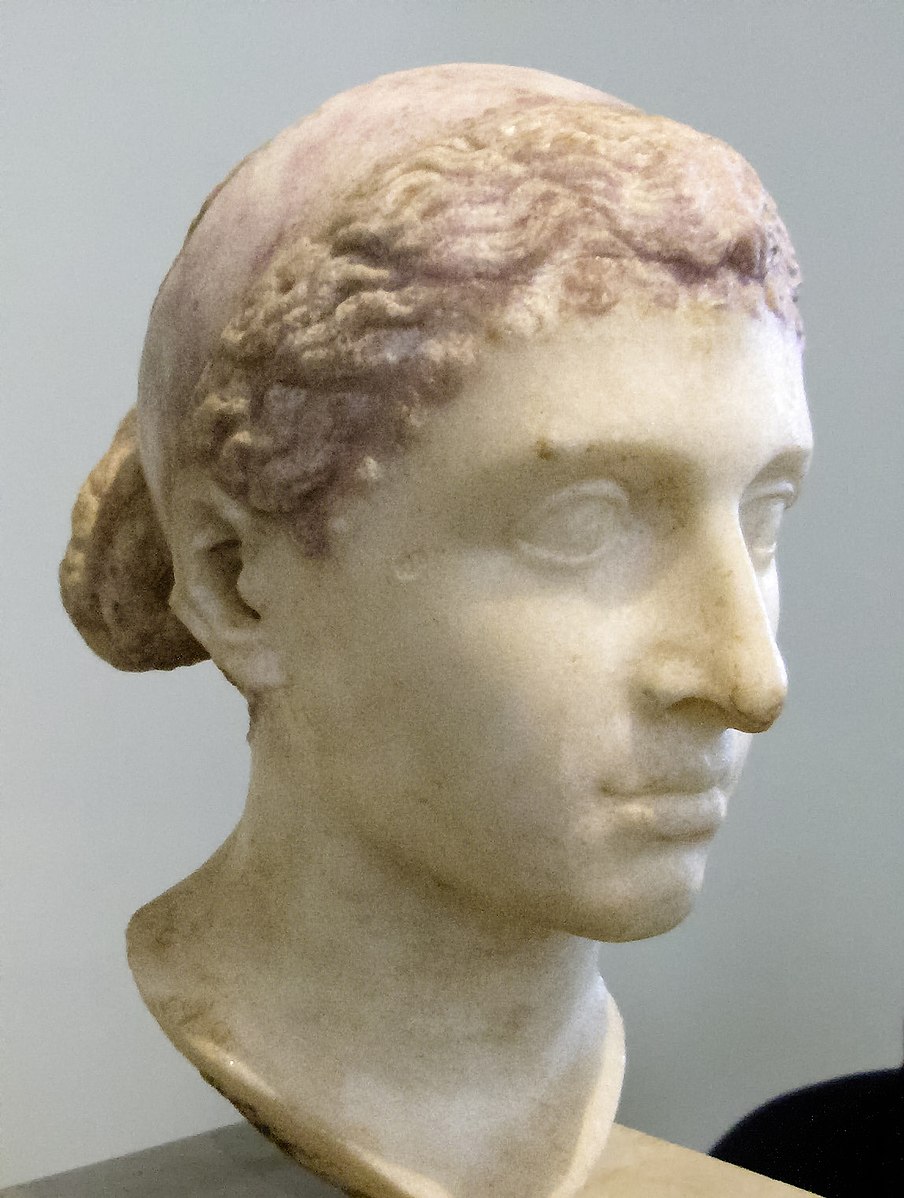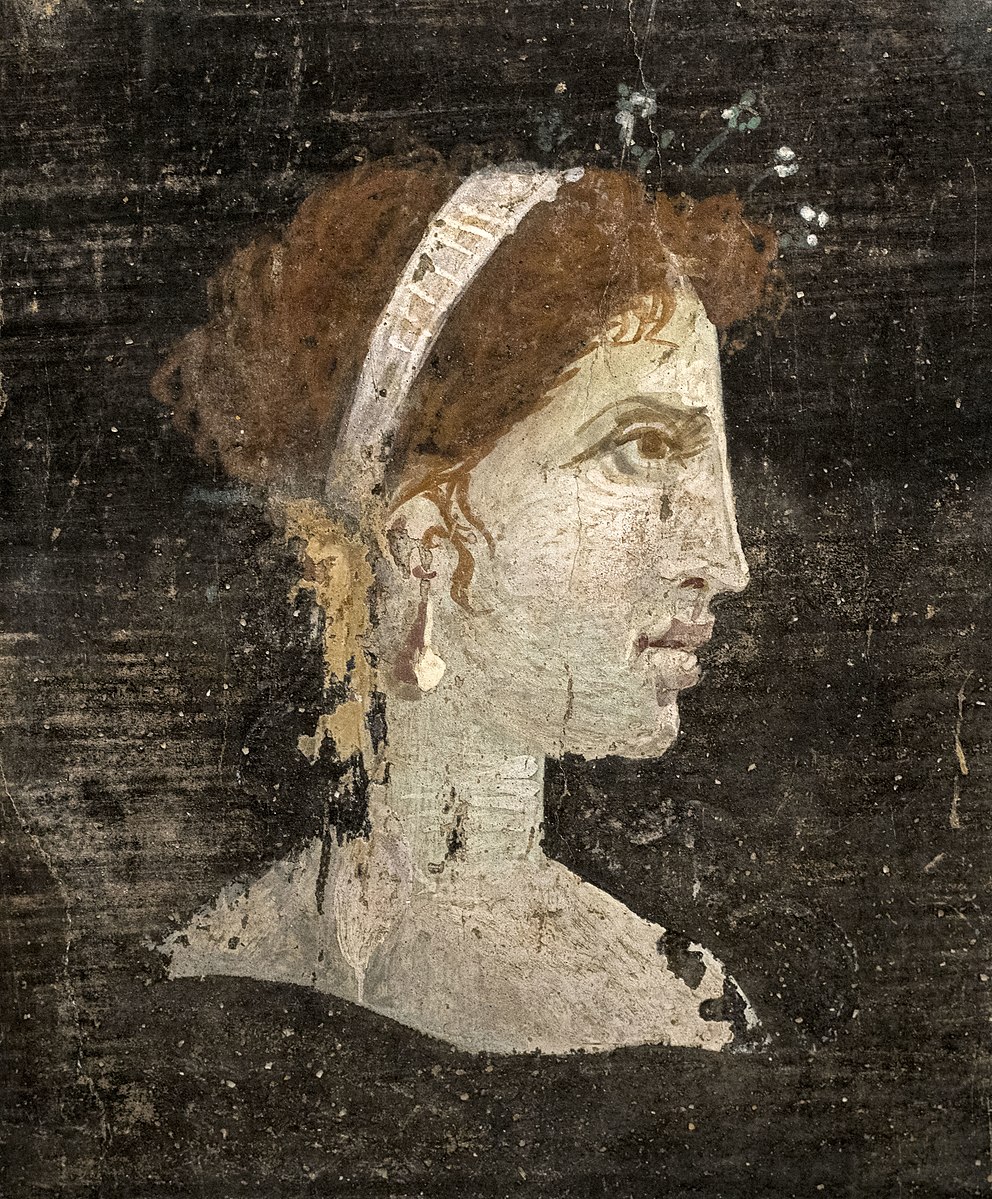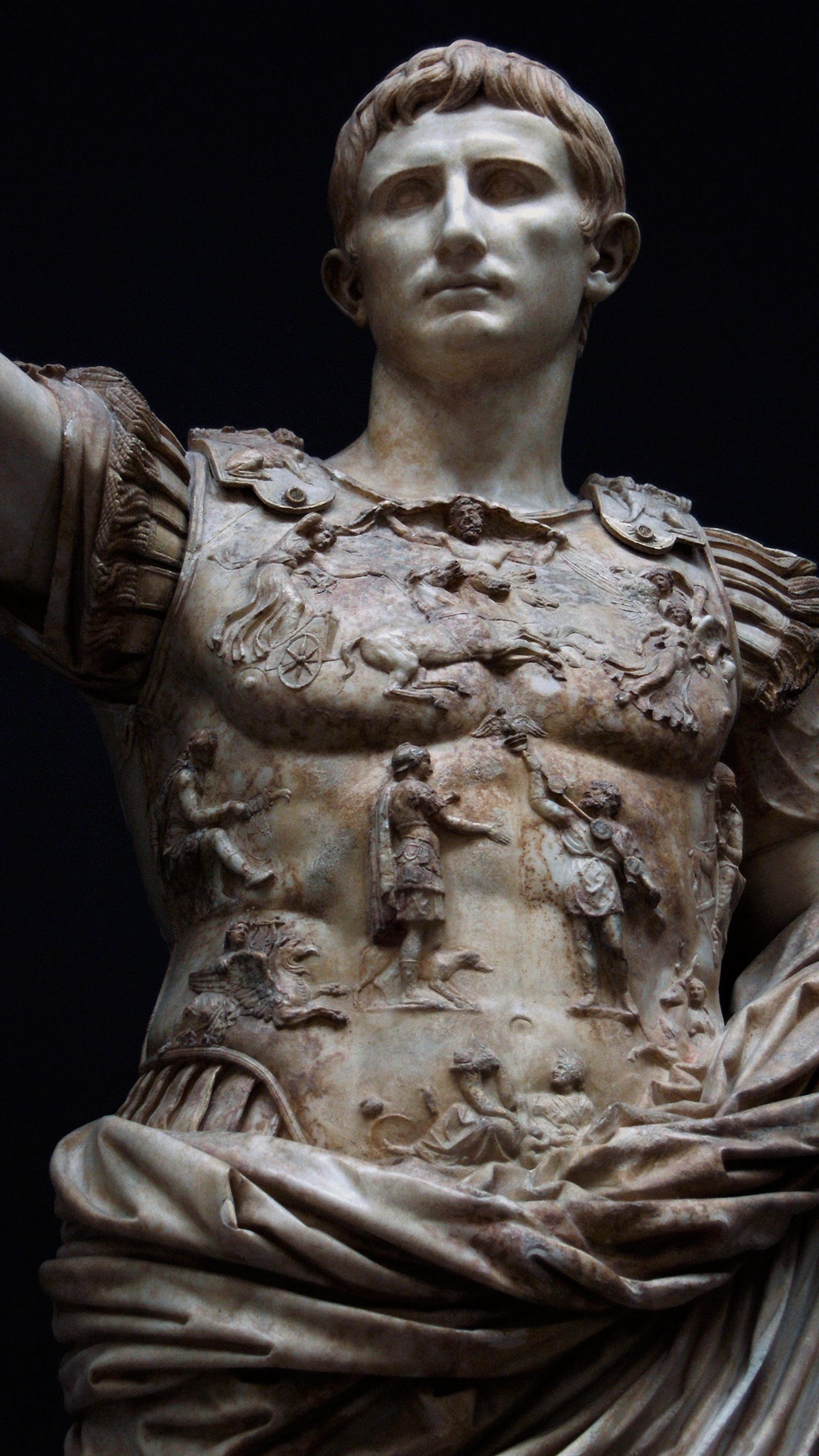
Cupid/Amor & bow (2nd century CE marble)
Creative Project #1 (due March 11 @11:59pm in D2L)

Cupid/Amor & bow (2nd century CE marble)
Creative Project #1 (due March 11 @11:59pm in D2L)
Roman elegy = Roman love poetry (in elegiac meter, late 1st century BCE): poet's obsession with mistress (versus marriage); love-poetry as complaint (rejection, pain, bitterness)

Milanion did not shirk hard labour, Tullus, my friend, in crushing fierce Atalanta, Iasus's daughter. Then he lingered lovesick in Parthenium's caves, and faced wild beasts there: thrashed, what is more, by the club of Hylaeus, the Centaur, he moaned, wounded, among Arcadia's stones. So he was able to overcome the swift-footed girl: such is the value of entreaty and effort in love. Dulled Amor, in me, has lost his wits, and forgets the familiar paths he once travelled.
But you whose trickeries draw down the moon, whose task it is to seek revenge, through sacrifice on magic fires, go change my mistress’s mind, and make her cheeks grow paler than my own! Then I’ll believe you’ve power to lead rivers and stars wherever you wish, with Colchian charms.
Or you, my friends who, too late, would draw me back from error, search out the cure for a sick heart. I will suffer the heat and the knife bravely, if only freedom [libertas] might speak as indignation wishes. Lift me through furthest nations and seas, where never a woman can follow my track. You, to whom gods grant an easy hearing, who live forever secure in mutual love, you stay behind. Venus, our mistress, turns nights of bitterness against me, and Amor never fails to be found wanting. Avoid this evil I beg you: let each cling to his own love, and never alter the site of familiar desire. But if any hears my warning too late, O with what agony he will remember my words!
Is it for me to supply sons for our country’s triumphs? There’ll be no soldiers from my line. But if I follow the true camp of my mistress, Castor's horse will not be grand enough for me. It was in fact through this my glory gained such a name, glorious as far as the wintry Dneiper. You’re the only one who pleases me: let me please you, Cynthia, alone: that love will be more to me than being called ‘father'.
Enough for me, and more than enough: if three little books form my procession, those I take as my greatest gift to Persephone.
And surely you’ll follow: scratches on your bare breasts; and never weary of calling my name; and place the last kiss on my frozen lips, when the onyx jar with its Syrian nard is granted. Then when the fire beneath turns me to ashes let the little jar receive my shade, and over my poor tomb add a laurel, to cast shadow on the place where my flame died, and let there be this solitary couplet:
HE WHO LIES HERE, NOW, BUT COARSE DUST,
ONCE SERVED ONE LOVE [SERVUS AMORIS ERAT], AND ONE ALONE.


L: Cleopatra VII (Roman, ca. 45 BCE); R: posthumous portrait (Herculaneum, 1st century CE)
Poem 3.11
. . . Truly that whore [meretrix, as Thais in Eunuchus], queen of incestuous Canopus,a fiery brand burned by the blood of Philip, dared to oppose our Jupiter with yapping Anubis, and forced Tiber to suffer the threats of Nile, banished the Roman trumpet with the rattle of the sistrum, chased the Liburnian prow with a poled barge, spread her foul mosquito nets over the Tarpeian Rock, and gave judgements among Marius' weapons and statues.The city, high on its seven hills, that directs the whole Earth, was terrified of a woman’s power and fearful of her threats. What was it worth to have shattered Tarquin's axes, whose life branded him with the name of ‘Proud’, if now we had to endure this woman? Celebrate a triumph Rome, and saved by Augustus beg long life for him! You fled then to the wandering mouths of frightened Nile: your hands received Romulus' chains. I saw your arms bitten by the sacred asps, and your limbs draw sleep in by a secret path. And your tongue spoke overpowered by endless wine: ‘This is not as much to be feared, Rome, as is your fellow-citizen [Octavian]!’
[Octavian/Augustus surpasses Rome's previous heroes, Actium its previous battles]
Apollo of Actium will speak of how the line was turned: one day of battle carried off so great a host. But you, sailor, whether leaving or making for harbour, be mindful of Caesar through all the Ionian Sea.
